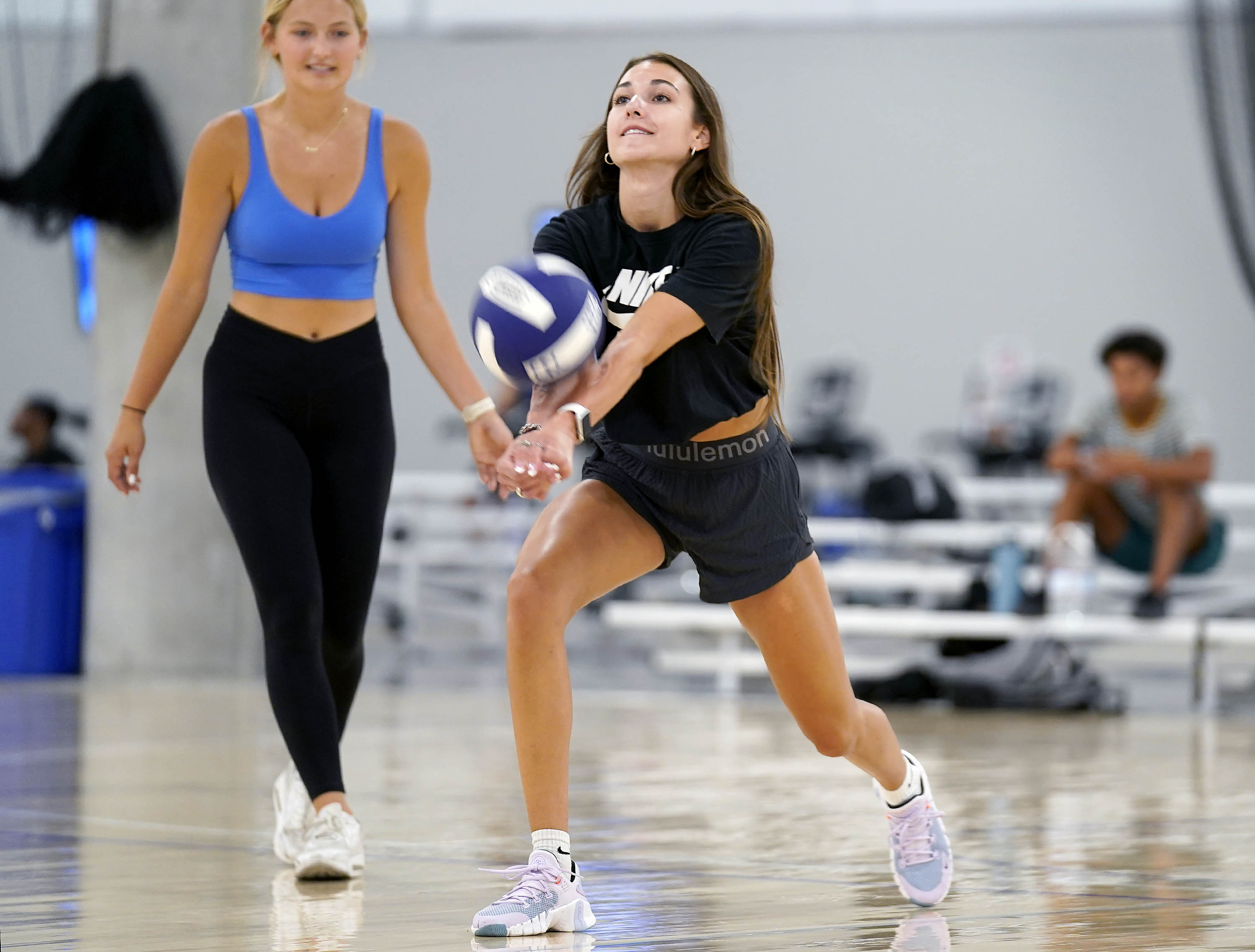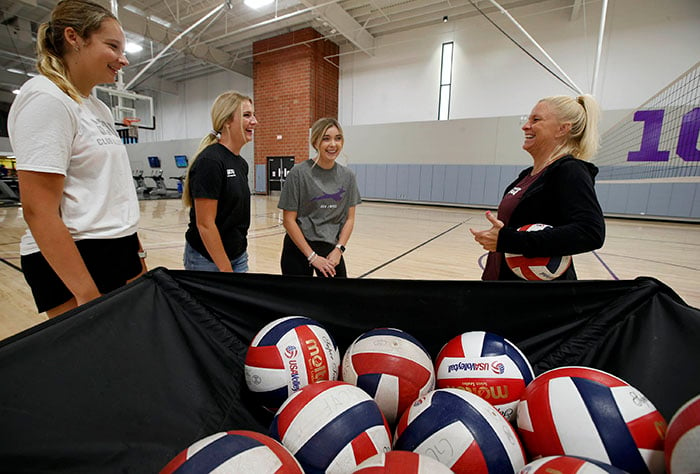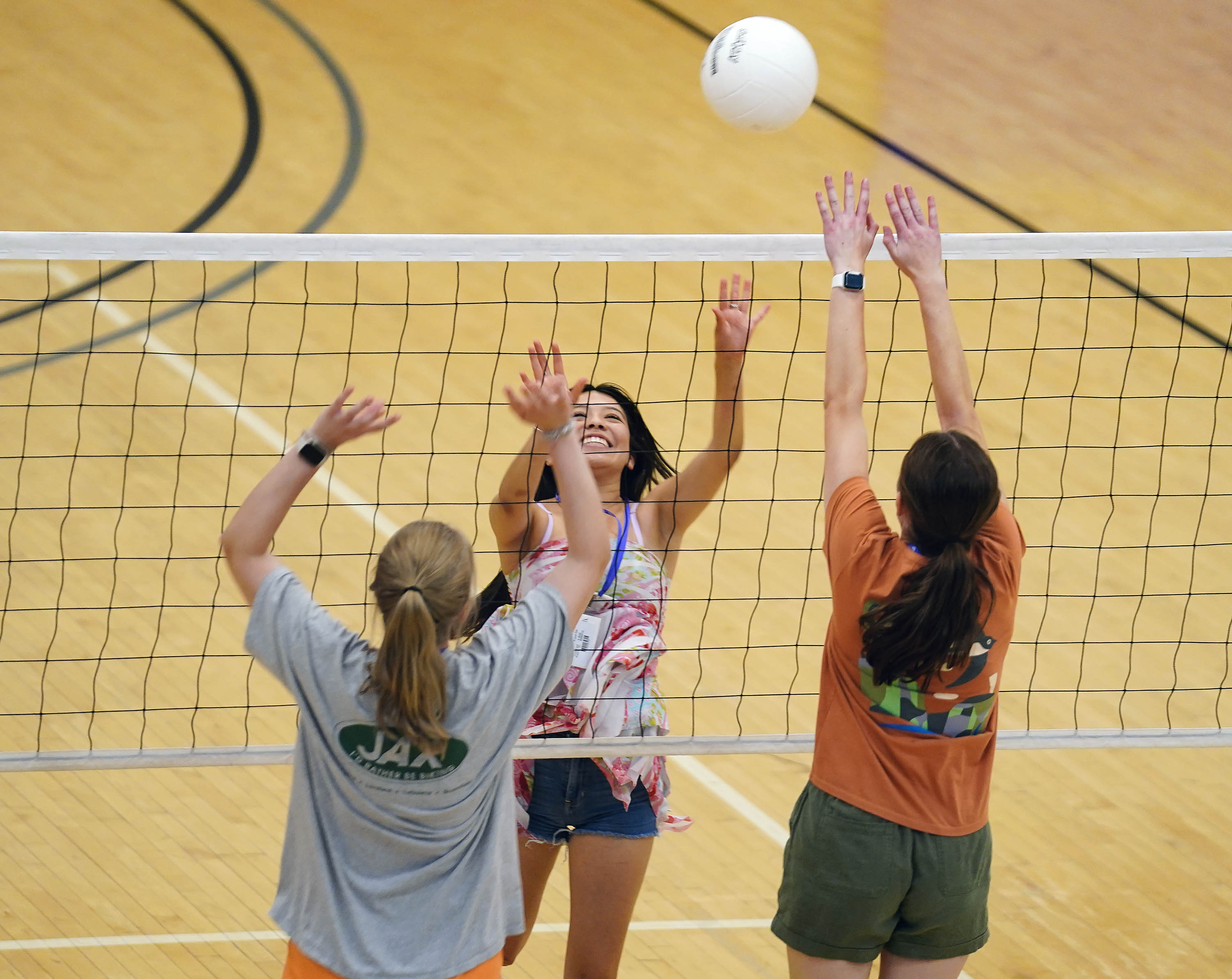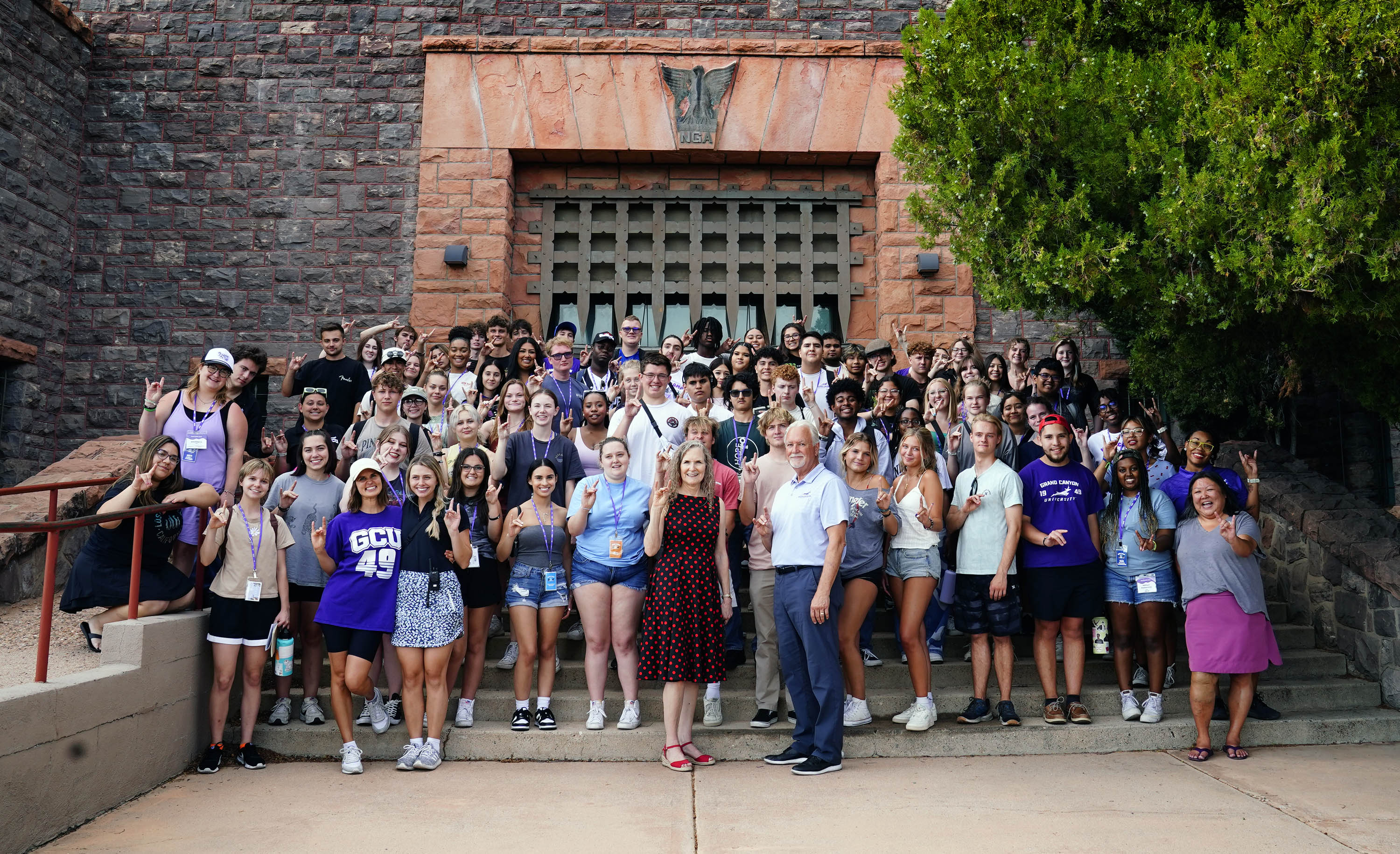By Karen Fernau
GCU News Bureau
Late night pizzas in the dorm. A grab-and-go donut and coffee before early morning class. Burger and fries on Friday night with friends.
For many students, college plays havoc on their waistline and health.

“They might not gain the 'freshman 15,' but too many college students do put on weight and do not eat healthy,” said Connie Colbert, director of the Canyon Health and Wellness Clinic at Grand Canyon University.
Weight gain is not the only consequence, she said. A diet high in sugar, salt, fat and calories can zap students of energy and the ability to concentrate. College students with bad eating habits also are more vulnerable to physical illnesses and depression.
The first step toward a healthy diet is knowledge, said Colbert, who encourages students to attend campus wellness seminars to learn guidelines for healthy eating. A seminar is scheduled for 4-5:30 p.m. on Sept. 12-15 in The Grove residence halls.
The wellness center also offers the following 10 tips:
Make Smart Choices: Choose baked over fried. Order brown instead of white rice. Swap the crunch of croutons for sunflower seeds. Choose a side of broccoli over french fries. Opt for a diet of fresh fruits, vegetables, whole grains and lean proteins.
Portion Size Matters: Experts blame growing waistlines on super-sized portions. Follow these guidelines to avoid overeating: A portion of chicken, fish, beef or other protein is the size and width of your palm. Starchy carbohydrates such as pasta, potatoes and rice are the size of your fist. A serving of fat, including peanut butter, olive oil or butter, is half a thumb. A fruit serving fits in the palm of one hand, vegetables in the palm of two hands.
Stock Healthy Snacks: Make your dorm room a junk-food free zone. Instead, stock up on fresh fruits, low-fat popcorn, whole-grain cereals and low-fat milk, peanut and other nut butters, whole grain crackers or low-fat cheeses.
Limit Sugary Drinks: College students too often reach for soda, energy drinks and other high sugar beverages. Along with sugar and calories, they cause blood sugar to spike and then crash, zapping energy, increasing hunger and leading to weight gain. New research shows that diet soda is equally harmful.
Read Labels: Many labels, including “all natural,” are unregulated guidelines and can be misleading. That “all natural” granola bar might have more sugar than a candy bar. Fat-free salad dressings and snacks often are loaded with sugar.
Don’t Skip Breakfast: The first meal of the day breaks the nightlong fast and jumpstarts the body and mind. Studies show that breakfast eaters are more alert, more creative and energetic. They also are less inclined to overeat the remainder of the day.
Beware of Stress Eating: College is a time of change, and the stress of acclimating to school can trigger overeating. People sometimes eat in response to anxiety, homesickness, sadness or stress, and all of these can be part of adapting to being away at school. Be aware of your connection between mood and food. Employ stress-management techniques such as meditation, yoga or exercise instead of turning to food for comfort.
Stay Hydrated: Every system in your body depends on water, and drinking enough is essential for health and energy. Not drinking enough leads to dehydration, a dangerous condition that causes fatigue and, in extreme cases, death. Health experts suggest drinking at least eight 8-ounce glasses a day, and more if you’re spending time outside in the heat or exercising. Get in the habit of drinking water all day long.
Move and a Good Night’s Sleep: Make exercising a daily priority. Physical activity helps control weight, improves mood and controls stress. So does getting enough sleep. Research now suggests that too little sleep leads to making poor food choices, overeating, depression and difficulty concentrating. Most college students require somewhere between 6-10 hours of sleep a night. If you’re tired or irritable, chances are you are not getting enough sleep.
Cheat Occasionally: Going out to eat or grabbing an ice cream cone with friends is a time-honored ritual. Go ahead and indulge, just not every day. Make that brownie topped with caramel and whipped cream a special treat.
Contact Karen Fernau at (602) 639-8344 or karen.fernau@gcu.edu.











